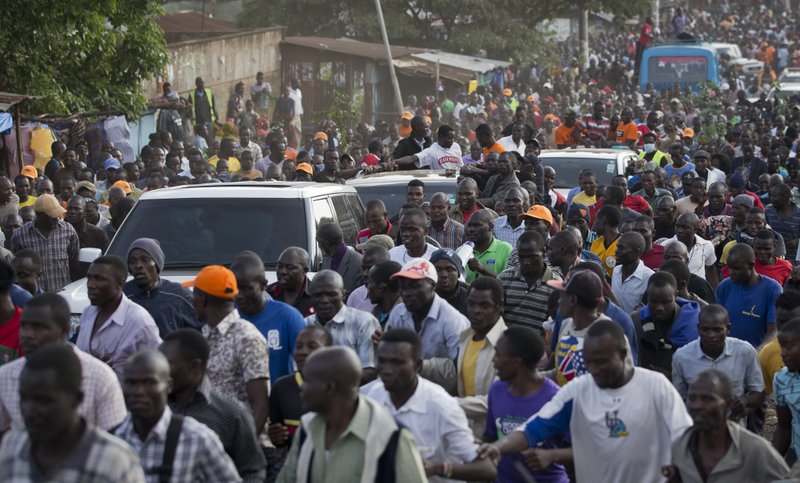Kenyan streets calm, but political standoff unresolved

Kenyan opposition areas were calm Saturday, a day after the country’s election commission postponed voting in four restive counties where deadly clashes between police and protesters have occurred.
The streets of Kisumu, Kenya’s third-largest city and an opposition stronghold, as well as several Nairobi slums are quiet. However, political uncertainty persists after opposition leader Raila Odinga boycotted the repeat presidential election on Thursday.
The election commission had delayed voting in four out of Kenya’s 47 counties until Saturday because of violence. This new postponement is “until further notice” because of concerns for the safety of election workers.
Thursday’s election was a rerun of the Aug. 8 vote that was nullified by the Supreme Court because of irregularities. It was the first time a court in Africa had overturned a presidential election. Odinga, whose legal challenge led to the ruling, withdrew from the new election, saying the process was not credible because of the lack of electoral reforms.
At least six people have died in violence linked to the latest vote, including a man who was shot and killed in the Nairobi slum of Kawangware as security forces moved to quell fighting between gangs from different ethnic groups late Friday, according to police.
Many observers say Kenya’s ethnic-based politics overshadow the promise of its democracy. President Uhuru Kenyatta, who got 54 percent of the vote in August, is from the Kikuyu community. Odinga, who got nearly 45 percent in the earlier election, is a Luo.
Thursday’s vote had a sharply lower turnout because of the opposition boycott. About 6.5 million people, or one-third of registered voters, went to the polls, according to the election commission. Nearly 80 percent of registered voters participated in August.
Odinga and Kenyatta also faced off in a 2013 election similarly marred by opposition allegations of vote-rigging. The opposition leader also ran unsuccessfully in 2007, and ethnic-fueled animosity after that vote killed more than 1,000 people and forced 600,000 from their homes.
AP News